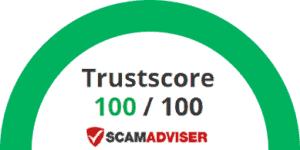Edge Studio’s Voice Over Rate Card requires registration, TVR is the Voice Realm’s Voice Over Rate Card and the official SAG-AFTRA (union) rates are here. The GVAA rate card can also be found at VoRateCard.com – it’s the same thing, same company. This rate calculator (D-Cypher) still works, but very slowly, and the company behind it was sold in 2020. Voices also has a price calculator.
How to Negotiate for Pros
First of all, if you have an agent, get them involved.
Having a rate card helps you negotiate on the basis of fairness, so keep that in mind. Use word such as “fair rate”; “standard rates”; “fairness”, etc.
If you have an agent, they may be able to negotiate for you. If you don’t, you may be able to contact an agent when you have a decent-paying opportunity and ask them if they would negotiate for you (and represent you in what they negotiate).
Otherwise, use the GVAA rate card. (The GVAA rate card is a good reference for pros—here’s why.) It shows a minimum, middle and high end. Do NOT end a negotiation with “That’s below my rate”.
Ideally, start with the rate card as a reference…and don’t be afraid to negotiate! Some examples:
They’re low-balling you.
Use the minimum to bring them up. You could say something like “These are the industry rates, I’m on the high end, and your offer is below the minimum.” If they will come up to the minimum, then you can try to split the difference. If you are NOT really working from high end rates, generally, don’t just use that as a negotiation tactic, but do point out that you may be working cheaper than your competition.
You can also look for things that you can add in. If they try to get you at a minimum gig price at their studio, you can accept, but explain that anything beyond 15 minutes is extra when working at their studio.
They’re confused about rate types.
If you are providing a kind of rate, say, per word, or per finished hour, and they want it explained in a different way, use the options on the rate card to help explain how it works.
Generally, provide à la carte options when it makes sense. For example, a talent recently provided a per gig rate and the client kept them over 4 hours in the studio while estimating only 45 minutes! You need to explain that anything beyond what is agreed upon costs extra, such as changes, studio time beyond what is estimated, etc.
They want a discount for _____
Rates should be a floor, not a ceiling.
We want a discount for more words. You can say “Generally, there are MORE costs on larger projects” (then negotiate from there).
We want a discount for working with a freelancer. Remember, the client has to pay the studio when NOT working with a freelancer. If you are working from a home studio, some talent work at HIGHER than union rates, because they have to pay their expenses.
What should your rates be?
Read on for how to start as a beginner, but remember: Raise your rates over time!
Start at the low end, include costs for all extras, and move up as you get better and more experienced. Study the rate card to learn how things are calculated.
How to Negotiate for Beginners
Ask “What’s your budget?” absolutely as soon as possible! Before the discussion even starts, when possible. This is very basic, but if you’re new to finding VO work, dealing with the budget question well will tremendously increase your pay. Then follow up with “What other voice over does your company do?” And possibly, “Do you need more than one language?”
If they say “We have no budget,” ask “How many words is it and where will it be used?” and then try following up with a high minimum:
- “We have no budget.”
- “How about $300?”
These exact words were spoken on behalf of a student recently. The client agreed to $350. If they say “OK,” follow up with
“Did you have a recording studio, or did you want me to produce?” Your production (studio) fees are extra. Also ask “What other voice over do you think you might need?” Then you can negotiate a package deal, or simply learn enough to decide if you want to work with them. You might think “no money” and “$350 would be fine” are very different, but remember, businesses MUST negotiate. A business can fail due to insufficient cash flow, even with many assets, good credit, etc. Don’t be upset that they negotiate. Just join the party 😉
Remember that if they want timing matched to a video, if they want to direct the recording, if they want anything other than you delivering a recording, that’s extra. Examples of bringing up budget early and often:
- Q: “They’ve been trying to find someone to redo our voicemail at work.”
- A: “What’s the budget for that?”
- Q: “A friend of mine recently did some voice over for his job”
- A: “What kind of budget did they have for that?”
- Q: “A friend told me you do voice over.”
- A: “What’s the budget for your project?”
- Q: “I don’t know if we could afford professional voice over.”
- A: “What’s the budget?”
If they have a budget, whatever they say, respond with something such as “That doesn’t sound like a typical budget…”
- …but I might be interested if we could do any future work on a more standard budget.”
- …but I could send you a standard budget rate sheet if you like.”
Then, if you haven’t already asked, follow up with “How many words is it and where will it be used?”and be prepared to follow up with “That would be a bit more, what other voice over do you think you might need?”





Trackbacks/Pingbacks